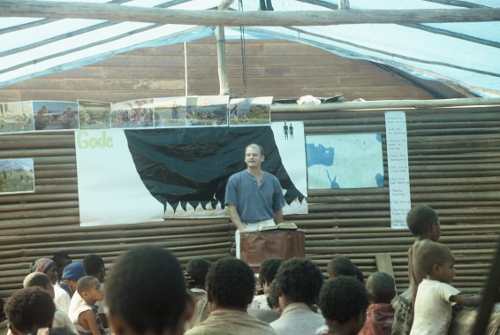Native Americans. Misreached?
Reached = Evangelized. Discipled. Equipped. Fully functioning1 indigenous church established.
Unreached = No significant response to the Gospel message either by no exposure or no acceptance. Also classified as least-reached which means less than or equal to 2% evangelical Christian, less than or equal to 5% professing Christian2.
Unengaged2 = a people group is not engaged when it has been merely adopted, is the object of focused prayer, or is part of an advocacy strategy.” At least four essential elements constitute effective engagement:
- apostolic effort in residence;
- commitment to work in the local language and culture;
- commitment to long-term ministry;
- sowing in a manner consistent with the goal of seeing a Church Planting Movement (CPM) emerge.

Photo courtesy of Andre James unsplash.com
I recently heard that only 5% of Native Americans (called “First Nations” in Canada) identify as Evangelical Christians. When one considers that some Native Americans have been exposed to Christianity since the mid 1600’s, that is a startlingly low percentage. Based upon the common understanding of the terms used in Missiology (above) the Native American situation may not fit cleanly in any of them. Churches sporadically spot the reservation maps but most of them (so I am told) are not driven by a methodology that is indigenously motivated. Starting a church on a reservation with the same mindset by which one would start a church in Columbus, Ohio will undoubtedly establish significant barriers before the launching of the initial Sunday service!
The 5% reception rate communicates one thing quite loudly; Whatever has been practiced for 300 years has not worked very well. Endeavors to “reach” native Americans have failed to accomplish the task. Well-meaning missionaries have sought to engage Native Americans for three centuries. All but one of the Native American languages have had at least some Bible translation work done in them yet the conclusion my research is producing is that Indigenous Native American churches are almost unheard of. My training and experience in working as a church planter to an indigenous people group in Papua New Guinea has caused me to conclude that mission methodology may be the primary culprit. When missions is driven by assimilation goals that are culturally, linguistically and historically insensitive it is highly unlikely that anything close to an indigenous church will result. This is why, perhaps, the term mis-reached is the most accurate term to describe the attempts to reach Native Americans.
On another blog I will detail some of the social issues obstacles in Native American societies. For now, understand that it is a condition that demonstrates the terrible darkness that Satan produces when unimpeded by the Gospel’s presence. It is a reality that only Jesus can remedy.
Will you pray with me about this? I desire to help in this dilemma in some way. Perhaps my training and experience could be of some service. I will be exploring some options out west in September. Please pray for the 567 federally recognized Native American Tribes (326 Reservations) that exist in our country.
1Fully functioning based upon the church planting principles of Self-governing, Self-sustaining, Self-propagating. These three concepts mean the church is not dependent on outside assistance in any way and the initiative and drive to maintain these principles comes from within the people group rather than from outsiders.



